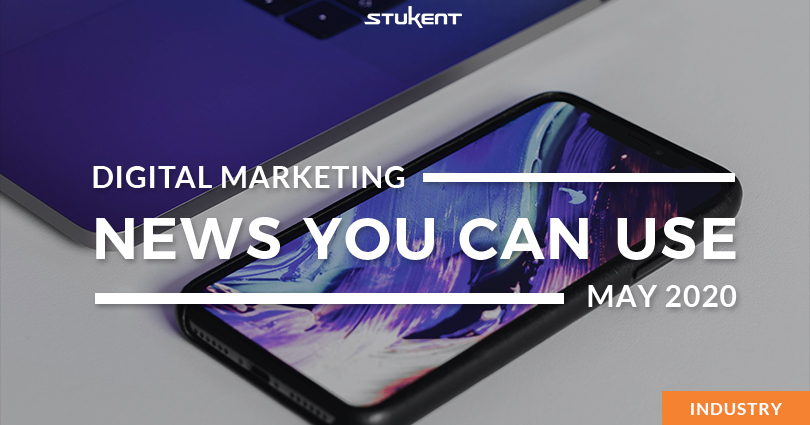Shortly after the pandemic shut many businesses down, brands began stepping forward to display generosity and compassion. From free subscriptions to free delivery, it seemed the marketing battle quickly became centered on who could be least concerned about building a business during a crisis.
Many small businesses were less blatant about leveraging the COVID-19 situation to increase sales. Many turned the toilet paper shortage into a bribe: Order food from us, and we’ll include a free roll of TP. Some are deflecting the obvious by creating specially-branded products and directing consumers to buy a bunch to give to health care workers—coffee specially blended for nurses, for example.
What is the correct approach for marketers to take during a crisis? Here’s a scenario to consider and discuss:
Suppose you’re the marketing manager for a company that sells outdoor gear—hiking, fishing, camping, and such. The CEO asks you how your strategic marketing plan has adjusted to account for the change in consumer sentiment and behavior due to COVID-19.
What do you say?
In this issue of NYCU, you’ll find insight on stories like these:
- How brands are dealing with the pandemic
- Instagram users can now send DMs from a desktop computer
- Why Google and Facebook are gunning for Zoom
The world may have changed dramatically over the past couple of months, but digital marketers know the fundamentals still apply and will get them through any crisis. Stukent applauds your diligence and desire.
Keep learning!
IT’S NOT ABOUT BRANDS, IT’S ABOUT PEOPLE
Topic: Social media marketing | Online advertising

Key Point: Edelman released their Brand Trust and the Coronavirus Pandemic report towards the end of March. By April, brands had responded in unison to the clear message from consumers. Edelman put it like this:
Brands must focus their messaging on solutions, not selling. Eighty-four percent of respondents said they want brand advertising to focus on how brands help people cope with pandemic-related life challenges. Seventy-seven percent said they want brands only to speak about products in ways that show they are aware of the crisis and the impact on people’s lives.
On April 9, Frito-Lay released the poster child for the new movement—a YouTube video asserting “It’s about people.” Marketing Dive covered the story and the trend.
Here’s the video (below). What do you think? How long can brands pretend to be unconcerned about marketing (while marketing) and restaurants woo customers with free toilet paper before consumers begin to think differently about those tactics?
FREE ASSIGNMENT: Use this free assignment to give students experience creating a people-focused COVID-19 campaign.
COVID-19 AND BUSINESS: HAVE WE HIT BOTTOM YET?
Topic: E-commerce

Key Point: Mom and pop stores aren’t the only businesses hit hard by COVID-19, even giants like Google and Facebook have felt the impact. Twitter’s description of the situation seems accurate: “widespread economic disruption.”
Here is a look at those advancements:
Advertising, especially, is down. Brands are pulling ads and adopting a wait and see approach. Tired of the economic impact, states are beginning to loosen restrictions, and there is general widespread hope we can quickly resume life without quarantines and social distancing.
Marketing Land’s article, Have we hit bottom yet? What new earnings reports say about COVID’s impact on digital advertising, provides brand quotes and data important to the times. There’s plenty of fodder to launch discussions.
ALSO SEE:
INSTAGRAM DIRECT MESSAGES FROM YOUR DESKTOP: HERE’S HOW
Topic: Social media marketing | E-commerce

Key Point: Instagram users can now send direct messages (DMs) from desktop computers. The move fits right in with the vision Facebook CEO, Mark Zuckerberg, described last year.
Here’s how The Verge put it:
Zuckerberg told The New York Times last spring that “private messaging, groups, and stories” were the “three fastest-growing areas of online communication” … He also said he eventually wants to allow Facebook, WhatsApp, and Instagram users to message each other, regardless of the platform they’re using.
For those still unsure about how to use Instagram Direct, Benjamin Chacon created a how-to guide to help you get going.
ALSO SEE:
HOW TO MEASURE MARKETING DURING A PANDEMIC
Topic: Analytics

Key Point: When you have a question about marketing measurements, there’s no better person to seek advice from than Avinash Kaushik. When Kaushik says he’s been thinking a lot about how to “measure your marketing efforts in a time of upheaval,” then you can bet there’s going to be some nuggets in there.
That’s the topic Kaushik elaborated on in a recent Think with Google article. In it, he tackles this question: “Should you even be measuring your marketing efforts during a time like this?”
You can read his reflections on that dilemma here: Inside Google Marketing.
WHAT IS AN API?
Topic: E-commerce | Digital marketing

Key Point: Here’s a digital marketing skill that’s relatively easy to grasp, but has such a high perceived difficulty that few marketers are aware of the benefits they could gain by applying it to their work.
Most of us have heard the term, API, some even know it’s an acronym for “application programming interface,” but that’s as far as general knowledge goes.
How do APIs work? What are some real-life examples of APIs in the wild, and how can you start using APIs for your own work?
SendGrid composed a quick-read tutorial that answers those questions and begins the demystification process. Check it out here: What exactly is an API and how do they work?
ALSO SEE:
HOW TO PREVENT ‘ZOOM BOMBING’ ON YOUR VIDEO CHATS
Topic: Digital marketing

Key Point: A Zoom meeting for Jewish Rabbis was interrupted by someone drawing swastikas across the whiteboard. A Zoom-hosted college lecture screen was suddenly filled with pornography. Those are just two examples of the thousands of incidents reported by Zoom users recently — proving the digital marketing maxim that you can count on the bad guys to show up in force as soon as your efforts get well known.
The FBI issued a warning about online hijacking during the pandemic, saying “reports of VTC hijacking (also called ‘Zoom-bombing’) are emerging nationwide,” and Zoom promised to shore up security to better protect their users.
The truth, though, is that Zoom-bombing can pretty well be stopped on the user end with existing controls. If your company is using Zoom to speak with prospects or hold internal meetings, here’s how to prevent interruptions: 4 Zoom Security Settings to Prevent Zoom Bombing.
ALSO SEE:
PINTEREST IS PROVIDING SPECIAL SUPPORT TO SMALL BUSINESSES
Topic: Online advertising | Social media advertising

Key Point: COVID-19 disruption has especially been tough on small businesses. Data research by Pinterest showed that “support small business” searches were up 351 percent. That, along with other trending search results, led the company to launch a special program in Pinterest Shop.
Here’s that announcement from the Pinterest Newsroom:
Supporting creators, makers, and small business has always been at our core, and in light of the COVID-19 crisis, this is more important now than ever…In honor of the 50th anniversary of Earth Day, we’re launching a brand new collection of products from sustainable brands on the Pinterest Shop…The latest curated collection features hundreds of shoppable products (click Pin to go straight to checkout on the retailer’s site) from 21 small and medium-sized businesses.
Small businesses interested in getting listed in the Shop can use the “Share your story” feature to get a leg in the door.
Get the entire scoop on this and find out how other brands are supporting SMBs in this excellent article on iMPACT.
ZOOM’S BOOM DRAWS COMPETITIVE FIRE FROM THE GIANTS
Topic: Digital marketing

Key Point: It took a pandemic to get the masses to embrace real-time online meetings, but now that the ice has been broken, even Grandma is Zoomin’. Given the strong chance that the broken dam may never be rebuilt, Google and Facebook are throwing their hats in the ring, hoping to draw many of those users into their own folds.
Facebook’s new Messenger Rooms feature will enable free private video discussions between up to 50 people. Unlike Zoom’s free version, though, there’s no time limit to worry about. Look for the capability to show up in every Facebook account soon.
Google Meet extended advanced features to all G Suite customers and promises to provide access to anyone with an email address for FREE over the next few weeks. In a Google Blog post, a Google VP had this to say:
We’ve invested years in making Meet a secure and reliable video conferencing solution that’s trusted by schools, governments, and enterprises around the world, and in recent months we’ve accelerated the release of top-requested features to make it even more helpful.
Note the tactful and tactical reference to security and trust.
Will Zoom get left behind, or will the first-to-get-famous rule be enough to withstand the challenge? Mark that in your notebook as a marketing story to watch.
ALSO SEE:
WHY STUKENT DIGS DEEP TO HELP KEEP YOU INFORMED
During his undergraduate days, Stukent’s founder, Stuart Draper, was often frustrated at the lack of up-to-date information on digital marketing. The high-priced textbooks he was required to read were largely out-of-date within the first year of publication.
What could be done?
It was that tried-and-trued method—find a problem and fix it—that provided the inspiration for Stukent.
Why does that matter to you?
There are plenty of other problems needing solved in the world of digital marketing today. Keep your eyes open. When you get irritated by something, don’t just throw a fit and walk away … look for the golden lining that surrounds the cloud.
See you next month!
BONUS INFO






